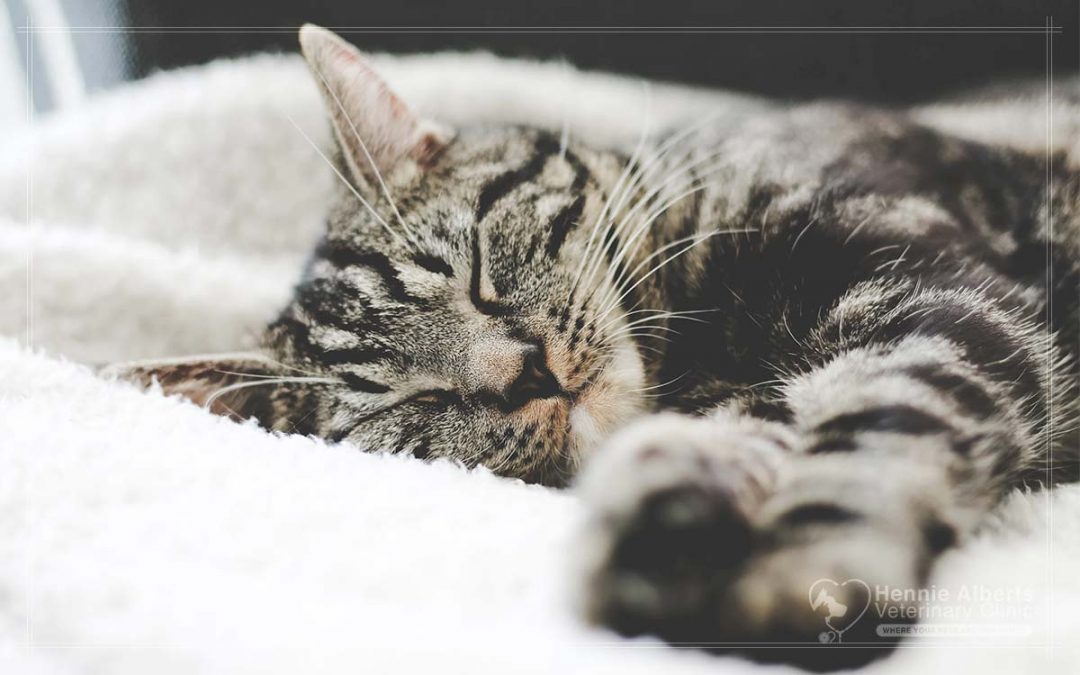It may sound odd to some that cats can get AIDS. It is not the same virus as people get but it’s the exact same principle. The Feline Immunodeficiency Virus (FIV) suppresses the immune system and can cause a wide range of clinical signs. FIV is mainly passed from cat to cat through deep bite wounds, which usually occur during aggressive fights. Another, less common, mode of transmission is from an FIV-infected mother cat to her kitten. FIV does not seem to be commonly spread through sharing food bowls and litter boxes, social grooming, sneezing, or other casual modes of contact. This is not the case with other highly infectious viruses such as Feline Leukaemia Virus.
Cats who are infected with feline immunodeficiency virus (FIV) may not show symptoms until years after the initial infection occurred. Although the virus is slow-acting, a cat’s immune system is severely weakened once the disease takes hold. This makes the cat susceptible to various secondary infections. Infected cats who receive supportive medical care and are kept in a stress-free, indoor environment can live relatively comfortable lives for months to years before the disease reaches its chronic stages. Some cats progressively get worse while others have cycles of sickness and then recover.
Because the disease affects the immune system, symptoms are extremely varied depending on the organ system affected. Cats may show any of the following symptoms (or a combination thereof): signs of fever, pale gums, weight loss, wounds that don’t healing, severe mouth infections, poor appetite, vomiting, diarrhoea, eye infection, sneezing, and nasal discharge. Not every cat showing these signs has FIV. It may be an isolated infection or condition. As mentioned, signs are not very specific but are a result of a suppressed immune system.
Although any cat is susceptible, free-roaming, outdoor intact male cats who fight most frequently contract the disease. Cats who live indoors are the least likely to be infected. It is a virus that only occurs in cats and cannot be transmitted to other species.
FIV infection is routinely diagnosed by a simple blood test called a snap test, which literally takes minutes. FIV is usually included in this viral screening test.
Unfortunately, there is no specific antiviral treatment for FIV. Cats can carry the virus for a long time before symptoms appear. Therefore, treatment focuses mainly on extending the asymptomatic period or, if symptoms have set in, on easing the secondary effects of the virus such as treating secondary infections. It is also important to feed an infected cat a good quality food to maintain condition and health.
Be sure your cat is spayed or neutered and does not fight with other cats. The best way to prevent your cat from contracting the virus is to keep him indoors or maintained within your own garden. By preventing roaming you are avoiding any chance of contact with other infected cats. Any recently adopted cat should be tested for FIV prior to entering your home.
Secondary infections that can occur as a consequence of FIV can progress to life-threatening conditions. Additionally, cats with FIV can develop various forms of cancer, blood disease, or kidney failure, which will ultimately claim the cat’s life.


